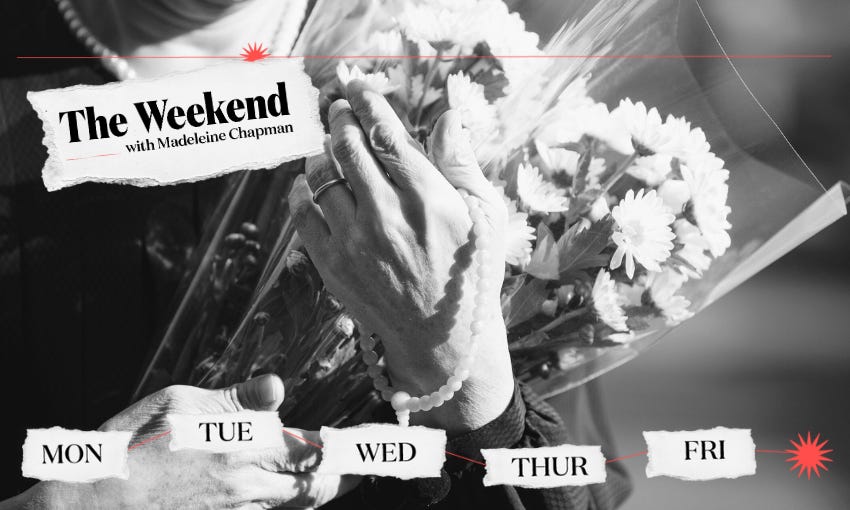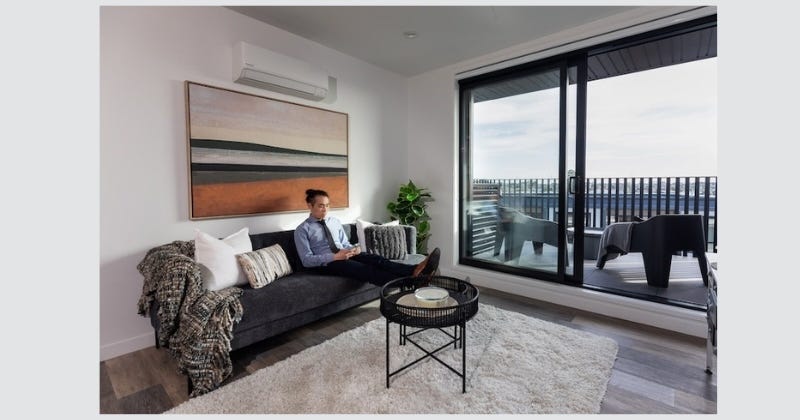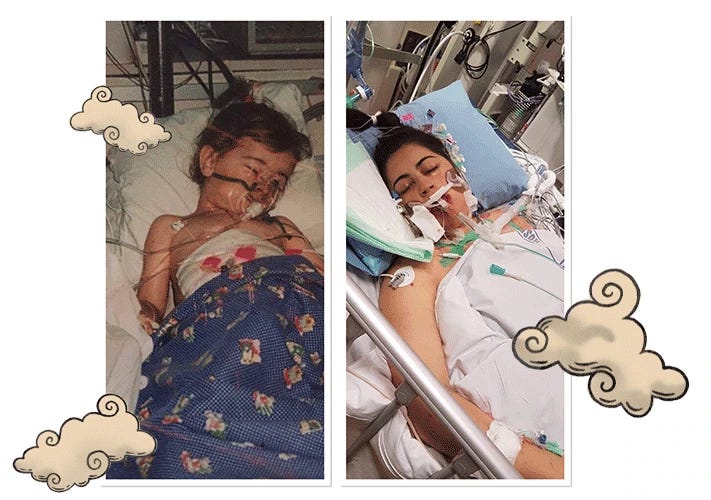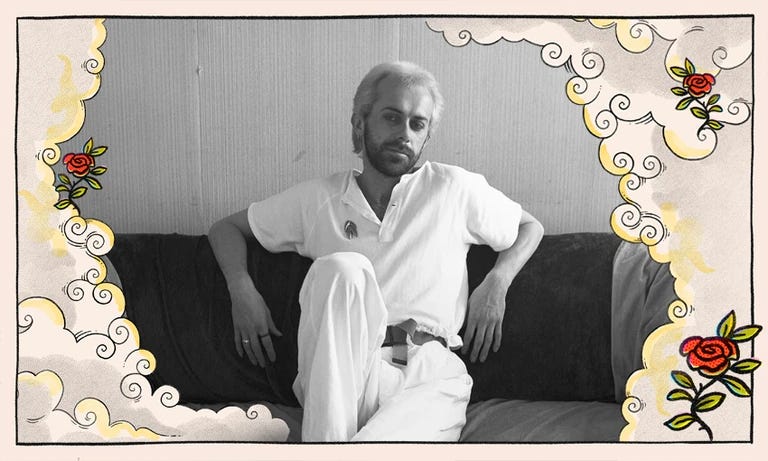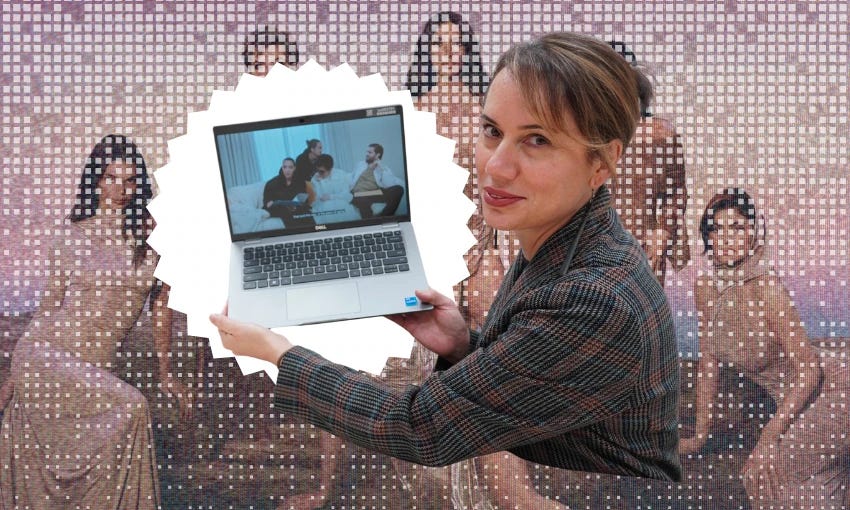If in doubt, go to the funeral
A final recommendation to round out Death Week. Plus the final abuse in care inquiry report and some light(er) reads.
Kia ora and welcome to The Weekend with Madeleine Chapman, in partnership with Kiwi Property.
Nothing forces you to reflect on your life and relationships quite like proximity to death. For those whose nearest and dearest have died, there are reasonably obvious steps – both logistically and emotionally – that one would expect to take in the days and weeks following. The next circle out (extended family, close friends) offer support and admin assistance where possible.
But for those even further out, it can be hard to know where it would be appropriate to say something or do something or even be present. What’s the etiquette if your friend’s mum passes away but you haven’t spoken to that friend in a while and never met their mum? Should you go to the funeral or would that be impolite since you lost touch? What about if a colleague from three decades ago dies and you read about it online? Would it be weird to suddenly show up when you had no idea what they’ve been up to for the past 20 years?
The answer to these and all questions is: go to the funeral if you can.
Unless the deceased or the deceased’s family actively dislikes you and you would ruin their day by being there, just go to the funeral. Or visit the family if there is a tangi or viewings before the service. It can feel weird or intrusive (naturally) to just show up, but funerals are not birthday parties. You don’t get invited and there’s no limit to how many people are allowed in.
Think about it from the other side. Imagine your loved one dies and at their funeral you see all these beautiful faces of people who knew them – people you had no idea existed but whose lives were touched in some way by your loved one. You wouldn’t be expected to talk to all of them but the option is there and you might learn something new about a life you cherished dearly. Or maybe you are experiencing one of the saddest days of your life and you look over to see some old familiar faces you haven’t seen in a long time, and they bring you comfort.
This is why you go to the funeral. There’s no test to pass to show that you should be there. And I’m certainly not advocating for showing up at strangers’ funerals. But if you’re ever feeling sympathy for someone and wondering whether or not you should go to the funeral – just go. It’s a few hours out of your day and while it might feel a bit weird or awkward to you – it’ll be the last thing on the grieving family’s mind. They’ll simply be comforted by your presence.
Behind the Story
Deputy editor Alice Neville joins me on the show this week as it was big week of news on The Spinoff, with the release of the final report from the Royal Commission of Inquiry into Abuse in Care. It was breaking news but also something we knew was coming, which is a very particular type of challenge for a small team without any dedicated news reporters. Plus, Alice makes a case for the crucial work that the invisible sub editors do every day.
Rent your way
Resido apartments allow pets, come with whiteware and have access to a 24/7 gym, rooftop BBQ area, media room, resident lounge, co-working space and more. These built-to-rent apartments are conveniently located next to Auckland's Sylvia Park. One, two and three bedroom apartments are available from $595pw. Find out more, here (sponsored).
‘Everything I do in life, I do it for my donor’: Inside Aotearoa’s struggling organ donation system
To launch Death Week, this remarkable Cover Story from T. Black looked at the state of organ donation in New Zealand. There are currently 400-500 people on the waiting list, but not enough organ donors to meet demand. “There are two ways a person can receive an organ. One way is through deceased donation,” writes Black. “The other option for organ donation is a living donor, but this only applies to kidneys and livers. In this instance the donor usually, but not always, knows the recipient.” It's a nuanced and complex topic, which Black has told through people, both givers and receivers of organs and tissue.
Sunday Essay: Remembering my brother
“He stood in the middle of the stage, tiny and alone, wearing nothing but a grass skirt and a Hawaiian lei around his neck. The piano player stopped. A ripple of amusement lifted from the crowd, and the crackly sound of a record came through the speakers. John looked like he was about to run until a voice called to him from behind the curtain and he began to dance. His hips shook to the sound of Hawaiian guitars, and his arms and fingers, held to the audience, quivered to the music.”
Read the powerful essay in full here.
Show your support, join up today!
“Thank you to The Spinoff team for a balanced news, arts, culture, society site, for the (mostly) clear sighted writing and, especially, for the intelligent satire. There needs to be space to be able to laugh" - From a Spinoff member.
If you've appreciated our political satire, as well as our journalism, please consider becoming a member today.
The local science that just made a huge cameo in The Kardashians
In the season five finale of The Kardashians on Thursday, several members of the family gathered together in one of their signature empty, cream-coloured rooms to hear test results that had been teased all episode. “I am so nervous,” said Kim, “But I have never been more excited for something in my life.” Khloe was less thrilled. “I’m getting anxiety,” she muttered to Scott Disick, who was on his phone and definitely not listening. “It’s so much pressure.”
They were waiting for the results of a blood test that revealed their biological age, as opposed to their chronological age. It's a test developed by The Dunedin Study, which has followed 1,000 New Zealanders since 1972. Its directorMoana Theodore told The Spinoff, “Although it’s surreal, in some ways, it’s not surprising”.
The stories Spinoff readers spent the most time with this week
Wellington editor Joel MacManus looks at over-cooked designs for pedestrian crossings that would block bike and bus lanes if built in his weekly column, Windbag.
Seems like everyone wants to know what the Jehovah’s Witnesses didn’t want anyone to know about the abuse which happened in their care.
This week’s excellent cover story ‘Everything I do in life, I do it for my donor’: Inside Aotearoa’s struggling organ donation system, which puts human faces on a complex issue, by T Black.
While the Royal Commission’s final report into Abuse in Care didn’t name names, only job titles, Joel MacManus verified 112 people who served in those roles from 1950 to 1999.
A tasting tour of Wellington’s best bánh mì by self-professed prolific eater Nick Iles.
Recommended reads from Death Week
Ever dug a grave? Liam Rātana has dug six, by his count, and writes vividly about the seemingly thankless task.
Gabi Lardies has dug deep into a topic rarely talked about – the lonely grief of baby loss and infertility.
Claire Mabey visited the first natural burial cemetery in Aotearoa, and tells the ongoing story of the movement working to make natural burials more common.
When will you die? How will you die? Shanti Mathias has cracked the data to answer these questions and more.
Recommended reads on abuse in care
The survivors and whānau in parliament’s public gallery were not quiet on Wednesday. Some yelled “No boot camps”. Joel MacManus asks if politicians are brave enough to listen.
Now we know the full content of the report, one survivor is even more concerned than before. Steve Goodlass points out some glaring emissions.
Lyric Waiwiri-Smith makes a case for delving into the final report of the Royal Commission of Inquiry into Abuse in Care.
Last year we dove deep into the stories of survivors of abuse from several institutions around the country in our series The Quarter Million. Make a cuppa and take care.
Light(er) recommended reads (and listens) for your weekend
Alex Casey talks to Jemaine Clement about making the new Time Bandits reboot, and getting to the bottom of which local landmark he hoped would get airtime.
Never say Toby Manhire doesn’t look after us – there’s a bonus, surprise episode of the much revered Juggernaut.
Tis the season to watch sports (the Olympics). Stewart Sowman-Lund has made a schedule of what to watch when, so you can keep up at the watercooler.
How did little old New Zealand become home to the world’s only Lesbian museum? Kitty Wasasala investigates.
Reader feedback of the week
On A tasting tour of Wellington’s best bánh mì (sorry Steve, and good luck).
“Damn you, Spinoff! I live in a provincial city where it is hard (not impossible) to find any decent eateries that do anything other than elevated pub grub. About six months ago you ran a story about the best Roti Canai in Wellington. It turned me into a mad scientist, I had to crack the perfect Malaysian chicken curry and roti in my kitchen due to not being able to find any where I live. It took months. My family begged me to stop. But I did it. Now I guess it's back to the lab. I can already see the looks of horror on my wife and kids' faces when I stumble through the door with an assortment of baguettes under my arm, a bag full of every different kind of pate I can find and a crazed look in my eyes. Poor bastards.” – Steve Steveson
“Personally, I wish someone could just wrap me up in a canvas shroud. Then tie some big rocks together with sisal rope, attach them to the shroud and throw me over the side of a sailing boat in 100 fathoms (200 m). No pollution, no water, no electricity, no expensive machinery and recycling my body back to Nature.” – Annie
Thanks for reading.
— Madeleine Chapman





